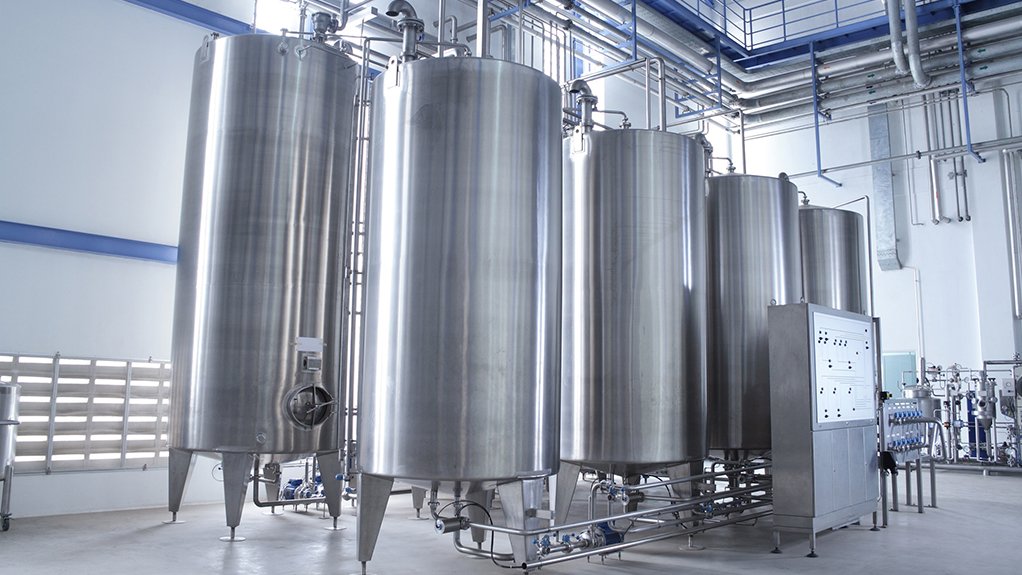Despite the impact of Covid-19 and a weak economy, the local stainless steel sector has shown its resilience, as the South African Stainless Steel Development Association (Sassda) continues to support industry through initiatives such as the Steel Master Plan.
“When the Steel Master Plan was first released last year, the stainless steel subsector received recognition for its work and the potential it offers the steel industry. Sassda’s role in the plan is aligned with its mandate, which is to promote the growth of the local conversion of stainless steel to the benefit of our members, industry and the country,” states Sassda acting executive director Michel Basson.
Since October last year, Sassda has been consulting regularly with the relevant government entities, including the Department of Trade, Industry and Competition (DTIC).
Sassda market intelligence specialist Lesley Squires says the DTIC’s primary focus for developing downstream opportunities, particularly for stainless steel, is prioritising the localisation of products. Localisation has become more important as local companies have had challenges sourcing products from abroad, emphasising the need for localising the manufacturing of stainless steel products.
“This includes fabricating products such as pots, pans, cutlery and other similar utensils. We are working with four major retailers to meet their specifications and align them with our members so that they can fabricate these products locally. Since it takes a while to identify product specifications and design, these products will only be available in the second quarter of next year,” she adds.
Basson enthuses that labour and industry stakeholders have been driving the implementation of the stainless steel section of the Steel Master Plan, while government is facilitating the process.
Further, he points out that this sector will collaborate with the DTIC, which is also involved with the African Continental Free Trade Agreement (AfCFTA), as this section of the master plan focuses on exports in Africa.
This will provide opportunities for the local stainless steel sector to export more to African countries, as Sassda is regularly conducting webinars with governments of other countries to facilitate more trade, although this is being impeded by the threat of cross-border Covid-19 infection.
Mozambique Opportunities
Squires stresses the opportunities for the local sector to supply stainless steel products to Mozambique, particularly amid the expected development on the back of natural gas discoveries made by gas company Total. These opportunities could also be boosted by implementation of the AfCFTA.
“There seems to be a commitment from Total and Italian oilfield services company Saipem that, by the second quarter of next year, the construction of their gas project should restart.”
In terms of downstream opportunities, it is forecast that growth in Mozambique in places such as Pemba – a capital port city in the Cabo Delgado that has been identified as an important location logistically for development of gas projects in the country – will see new facilities, such as hospitals and clinics, built because of the development. There is possibly going to be a whole city developing from a small town, she declares.
Squires argues that the hygienic benefits of stainless steel could also result in opportunities to provide products, such as sinks, hospital beds, surgical equipment and other medical equipment.
Further, an increasing population – stimulated by developments such as those in Pemba – could provide opportunities for South African stainless steel fabricators to supply downstream food and beverage processing equipment, particularly owing to the lack of fabricators in Mozambique, she argues.
Squires highlights that integrated chemicals and petrochemicals company Sasol is looking to build an underground gas pipe from the Rovuma basin, in Mozambique, to Sasolburg, in South Africa.
“A lot of equipment needed for this, such as valves, tubing and piping, will be stainless steel. We have close ties with Sasol Mozambique, so we will be top of mind when it comes to supplying these products for the project. All of this, however, depends on security issues in the country being resolved,” she stresses.
Local Hollowware
Basson underlines the opportunities for increasing local demand for stainless steel products by creating demand for locally produced hollowware through discussions with local retailers.
“About 2004, South Africa had a hollowware fabrication industry and numerous hollowware suppliers. We then had a problem with dumped imported products that resulted in a decline in the local market. It has continued to decline and this came down to price competitiveness.”
While the demand for locally produced hollowware products is still low, he states that the AfCFTA can help to increase demand for South African hollowware products for export throughout Africa, which, in turn, can increase local volumes.
“The needed capacity in local stainless steel fabricators to meet this demand for hollowware does exist, and there is enough capacity. What we need to do – and not only by Sassda – is to buy and support South African-produced products. There should be an aggressive drive on a united front,” he concludes.
Edited by: Zandile Mavuso
Creamer Media Senior Deputy Editor: Features
EMAIL THIS ARTICLE SAVE THIS ARTICLE
ARTICLE ENQUIRY
To subscribe email subscriptions@creamermedia.co.za or click here
To advertise email advertising@creamermedia.co.za or click here



















